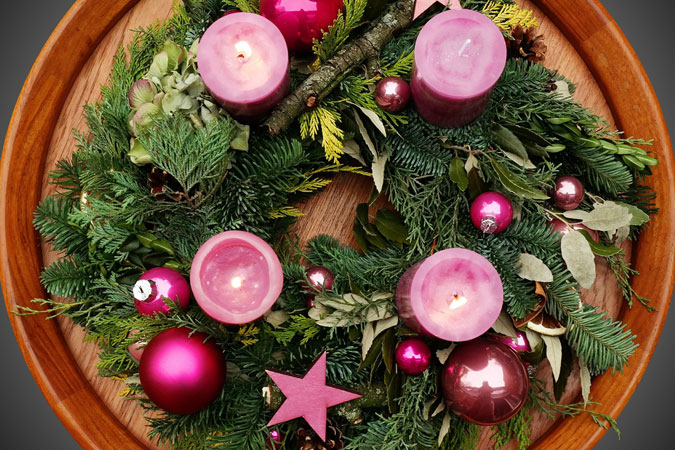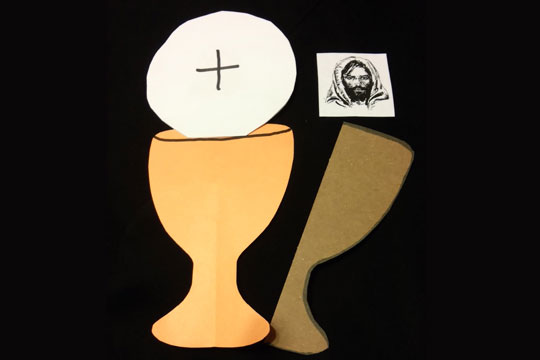![]()
When I wrote about the Marian learning stations, I might not have been realistic about what we could accomplish in the time allotted. Because I wanted to keep working groups small—three or four people per station—I went with more stations than I should have. As a result, we ran out of time before everyone could get through all the stations, especially since each activity took a different amount of time to complete.
The idea, you may recall, was to incorporate a selection of worksheets with activities for the young people to complete independently or in small groups to learn about the Virgin Mary. Our focus was on the Annunciation and the December feasts of Immaculate Conception and Our Lady of Guadalupe. Most of the worksheets were blackline masters from our Finding God program that related to the art prints featuring Mary; I also added a couple of my own.
The activities that involved art were definitely the most popular. But as I wanted to appeal to multiple learning styles, stations also included other types of activities that this particular group of young people found less engaging—though I know another group might have preferred the stations that utilized writing or puzzle-solving skills.
Now that I know what worked and what didn’t work so well with this lesson, I can modify the concept for next year to have a stronger plan for the young people. I will probably cut out at least one station for overall classroom traffic flow and look for an alternate activity for one that seemed to raise more questions than we had the time to address. I will allow more time for some sharing about the experiences young people had with the stations, which will help them to process what they learned about Mary. The Annunciation meditation from Finding God, Grade 7, Session 4 worked nicely as a group prayer to conclude the evening.
Even though I have years of experience in planning lessons, I know I can always make improvements to them from year to year. By honestly evaluating a session afterward, I can learn how to make next week’s session better and improve next year’s lesson on the same topic. Trying new things is important and helps us grow as religious educators, and we need to remember that our lessons are always works in progress.
How have you improved a lesson after evaluating a session? Has taking time to evaluate how things went in one session helped you to improve classes the rest of the year?





Be the first to comment